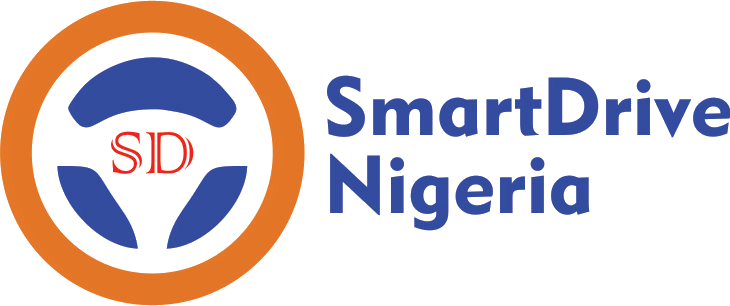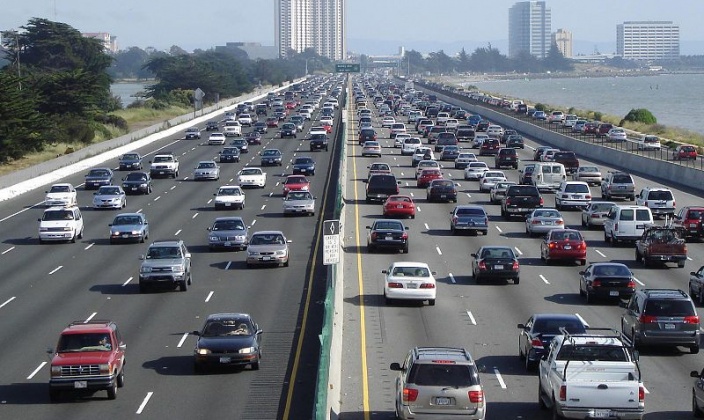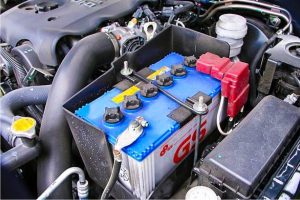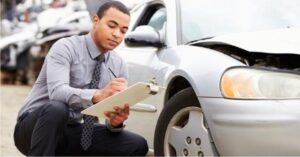If you have been faulting the Nigerian Traffic Offenses, then ignorance of the law is never an excuse. Here is the list of the list of 50 Nigerian Traffic Offenses that you need to know as a driver, a cyclist or even pedestrian.
It is your responsibility as a motor driver or bike rider to get yourself acquainted with the rules and regulations guiding your use of the Nigerian roads. Every road user should be disciplined, careful and considerate to others on the road.
This is to ensure we have safer roads available for all users, thereby avoiding road crashes, road congestions, or road blocks that may lead to injuries, arrests and prosecutions; as conferred by section 10(4) of the FRSC Establishment Act, 2007.
This article is part of a tutorial sequence: “Starting Driver’s Training at AB Drives. To get the most out of this session, it is expected that you read the previous lessons on Understanding the Nigerian Traffic Laws – before continuing this post!
Nevertheless, below is the list of the Nigerian traffic offenses that you need to know and understand before going out there and driving people, your family or other passengers or goods.
The List of 50 Nigerian Traffic Offenses You Should To Know
It is an offense to:
- Be on any road without vehicle lights or faulty lights, signs or reflector or wrongful use of signals.
- Obstruct any section of the road with vehicles or in any other way that may affect the free flow of traffic.
- Use a restricted road where it is marked “One Way” or “No Entry”.
- Disobey speed-limits erected at road construction areas or any other roads.
- Drive a vehicle without a valid Learner’s Permit, Drivers’ License, or any other permit as required by law.
- Drive a vehicle without a valid Vehicle License or Vehicle Identification Mark being displayed.
- Overtake another vehicle wrongly.
- Disobey traffic light signals.
- Disobey or disregard road signs or pavement markings.
- Drive a vehicle, a two or three wheel cycle on any road in a reckless manner that will be dangerous to other road users.
- Drive a vehicle or motorcycle with forged vehicle papers, particulars or license.
- Drive a vehicle or motorcycle under the influence of drugs or alcohol.
- Drive a vehicle or motorcycle or any mechanically propelled engine that would result in the damage to any public presence, street light, traffic lights, road signs etc.
- Engage in any act of commission or omission which may constitute hazard to other road users.
- Remove from a vehicle, the sign, “Do not move”, when placed by road safety inspectors.
- Use a road that is under construction.
- Fail to move over to the slow lane to free up traffic flow where necessary.
- Uncover gravel or other unstable materials with tarpaulin or strong plastics to stop it from spilling on the roads.
- Cover your number plate at the front or rear sides of the vehicle.
- Load a vehicle above the weight of passengers required by law.
Read: 20 Important Road Safety Advice for All Drivers
- Drive a vehicle with projected objects or loads.
- Obstruct or assault road marshal in the performance of his/her duty.
- Drive a vehicle with damaged or shattered windscreen.
- Drive a vehicle with worn-out tiers or without spare tire.
- Drive a vehicle that is mechanically defective.
- Drive a vehicle without a fire extinguisher.
- Assault a road traffic marshal on duty.
- Corrupt or bribe a marshal on duty.
- Fail to report at designated place as a traffic offender.
- Drive a vehicle that emits excessive smoke.
- Drive a commercial vehicle without a passenger manifest.
- Use your GSM phone while driving.
- Driver under the approve 18 years of age.
- Ply the road as commercial drivers and conductors without badges.
- Ply the road without side and inner rear mirrors.
- Drink, eat or smoke while driving.
- Drive a double-decker bus in Nigeria.
- Fail to use your headlights during inclement weather or in the night.
- Fail to signal when changing lanes, making a turn or pulling in front of another vehicle.
- Fail to properly secure under-aged children in an approved school safety seat or booster seat.
- Travel in a bed of a pick-up truck by any person.
- Fail to use seat belts while driving.
- Fail to pay any prescribed fine or other fees under the law.
- Provide incorrect address under the law.
- Reject accident victims as hospital or medical personnel.
- Ride a motorcycle without a crash helmet properly strapped to the head and fastened under the chin
- Drive with one hand.
- Park on yellow line on a public highway (illegal parking)
- Fail to give way to pedestrians crossing
- Following an emergency vehicle
Wrapping up: 50 Nigerian Traffic Offenses for Drivers and Cyclists
This is the list of 50 Nigerian Traffic Offenses you should to know as a drive, rider or road user. We hope you will become a better road user after reading through this post? You can contact us to request a free information pack and downloadable resources.
The Nigerian road enforcement agencies which are the Nigerian Police Force (NPF), the Federal Road Safety Corps (FRSC), the State Security Services (SSS), and the department of vehicle inspections (VIO) are all well equipped to enforce these rules and regulations in the case of road offenders.
If stopped by any of these road enforcement agencies while driving a motorized vehicle in Nigeria, you must come to a complete STOP and follow any lawful orders or directions given by any such officers. Failure to comply with road enforcement instructions and disobedience to traffic laws may result in a fine, arrest or your vehicle being impounded.
Additionally, you will be responsible for providing your valid driver license, fire extinguisher, vehicle registration documents, and proof of ownership; or insurance policy document. If you’re in any emergency situation involving you or other road users, you too can be of assistance by contacting the road enforcement agencies near your locations.
You can call the FRSC Emergency or Toll Free Numbers:
Emergency Number: 070022553772; Toll Free Number: 122; Text Massages Only Number: 08077690362. You can visit: http://frsc.gov.ng/ for more information.
Is this article helpful? Share it with friends and leave your comment below. Connect with our Road Safety Team and find out more about road safety campaigns!




